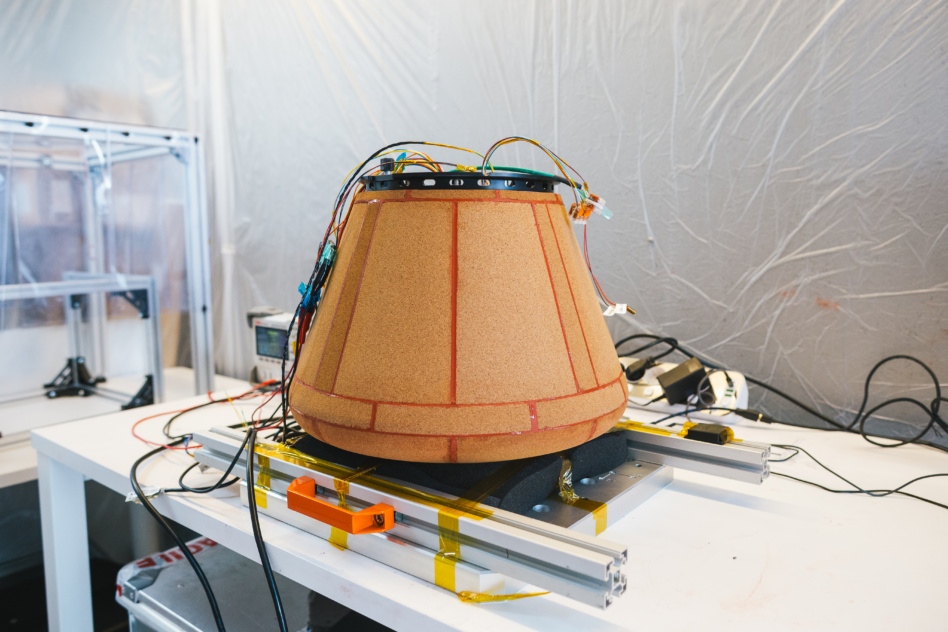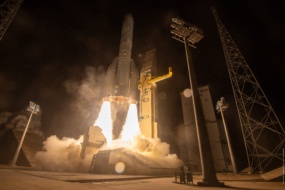Compared to the total mass of hardware that humanity launched to space during the last 70 years, the amount we’ve brought home intact pales in comparison.
In recent years, a few companies have worked to create a more reliable and affordable return path from space. One of these, Orbital Paradigm, announced its first reentry mission this week. The company’s vehicle prototype is expected to fly before the end of the year, bringing three customer payloads to space and back.
A new paradigm: Orbital Paradigm was founded in 2023 by Francesco Cacciatore, who serves as both CEO and CTO, and COO Víctor Gómez. The two Spanish engineers have decades of collective experience working for European space tech companies such as D-Orbit, Sener, and Deimos Space.
Their aim for Orbital Paradigm is to create a reusable orbital class reentry vehicle that can survive in orbit for three months, and return payloads to landing pads in continental Europe on a monthly cadence.
The startup’s first mission this year will fly a pared-down version of its eventual flagship vehicle.
- The small-scale vehicle, the Kestrel Initial Demonstrator (KID), weighs about 25 kg and is roughly 40 cm across.
- It has no propulsion, no parachute, and no recovery plan at the end of its mission.
- Instead, the vehicle will attempt to separate from the launch vehicle, transmit data from orbit using at least one of its two redundant antennas, withstand the shock and heat of reentry, and then message home at least once before its demise.
- The vehicle is also testing one “SpaceX-like” ceramic tile design sample, which Orbital Paradigm plans to use on future iterations.
On the company’s second mission, slated for next year, Orbital Paradigm will fly another small-scale version of the flagship vehicle, this time equipped with propulsion tech and a parachute. The mission is expected to last 30 minutes on orbit, and return the vehicle for recovery in the Azores.
After the two demos, Orbital Paradigm will work towards its full-scale vehicle, called Kestrel, which could launch as early as 2027. It’s a 360 kg reentry craft capable of bringing up to 120 kg of payload to orbit for three months, before returning safely.
Show me the money: Orbital Paradigm officials believe the key to the company’s success lies both in its drive to complete these flights largely on the company’s own dime, and its narrower focus.
Unlike its European counterpart—The Exploration Company, which is investing heavily in developing a human-rated vehicle—Orbital Paradigm is singularly focused on cargo. These uncrewed vehicles will fly missions for in-space manufacturing, microgravity testing, hypersonic testing, and (eventually) point-to-point delivery.
Demand soars: Even though Orbital Paradigm’s vehicle is unflown, customer demand has been strong. The first demo mission is fully booked with customers, including ALATYR in France, Leibniz University Hannover in Germany, and an undisclosed third customer. Orbital Paradigm also has an agreement with CNES to fly future payloads for the French space agency.
Even more impressive is the total cost for the first mission, which came in at less than €1M, including salaries, hardware, engineering, and launch.
Orbital Paradigm’s representatives said the company achieved this by being “cleverly integrated”: The company buys what it can, adapts COTS parts to fit its needs, and engineers the rest in-house. The result is a comparatively cheap reentry vehicle that could approach profitability quickly.
“I’m not an American VC. I mean, I’m a European engineer,” Cacciatore told Payload. “The price point of Kestrel for [the] third flight onwards is designed to be sustainable, meaning…if we’re able to fly four or five times a year, each flight covers its costs and makes a good margin.”




